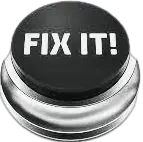If someone ran me off the road, it can be an emotionally devastating experience. Unfortunately, these types of incidents often remain difficult to resolve as those involved often don’t realize they caused a collision and carry on driving despite having caused one.
Calling the police as soon as you experience a collision is key to identifying those responsible and recovering any evidence related to make, model, and color of vehicles involved in accidents. Try and recall details like make/model/color if possible so as to increase your odds of success in doing so.
Call the Police
Even if there are no injuries and minimal damages, it is still essential that you report your crash to law enforcement. If the driver who hit you attempts to pressure you into not calling or wants to work things out privately with you instead, resist their pressure – they likely have good reason for wanting to avoid police involvement, such as not having insurance or having warrants out for their arrest.
Calling the police increases your chances of identifying and proving liability against those responsible for your accident. Try to remember as much detail of what occurred as possible – such as make, model and color of vehicle and its driver as well as when events unfolded – this may help especially as time goes on and memories fade over time. Writing down timeline of events as they transpire can also prove useful as memories tend to fade over time.
Collect witness contact information if possible. Eyewitnesses can be invaluable resources in helping police to identify and locate those responsible, potentially providing license plate numbers or providing insight that could speed up resolution of your case.
Contact the Insurance Company
After being hit off the road, it can be challenging to claim compensation from those responsible. Insurance companies tend to view incidents such as this one as single car accidents in which you were solely at fault and will therefore deny your claim for compensation.
Imagine how serious this situation could become; unfortunately, most drivers who push another vehicle off of the road don’t stop and may drive off without realizing what has occurred. Eyewitness testimony can make all the difference for your case.
When speaking with eyewitnesses, it’s essential that they provide as much identifying information about the driver at fault and their vehicle as possible. Color, make and model can all be useful pieces of data; similarly noting any distinguishing marks or features such as license plate numbers is helpful too. Also note any witnesses that provide testimony for your case such as names, phone numbers and emails addresses for future reference.
If the crash took place near a business, ask them whether they have any video footage that can aid your case. Don’t forget to take photos of both vehicles involved as well as injuries sustained and the incident scene itself if applicable.
Hire an Attorney
Becoming run off of the road by an unexpected driver can be terrifying and the injuries caused can often be extremely serious. If this has happened to you or a loved one, it is vital that they reach out immediately to a legal professional for guidance as they can provide help in understanding their legal options and work toward getting compensation on their behalf.
As part of their service, attorneys can also review your medical bills, lost wages, property damage and other expenses that have resulted from an accident. With their help, you will determine how much total compensation should be awarded based on the extent of your losses and negotiate with insurance companies to secure offers that accurately reflect them.
If you have been injured by a driver who ran you off the road, consulting an attorney immediately is highly advisable. They can help investigate who hit you while offering legal advice about filing your claim through court and holding them responsible; their expertise dealing with insurance companies might also prove useful in holding them responsible; other techniques might include inspecting damage patterns on your vehicle, reviewing police reports or interviewing witnesses to bring prosecution.
If the phantom driver can’t be identified or located, your own car insurance provider must treat them as uninsured driver and cover your damages under your UIM policy.

